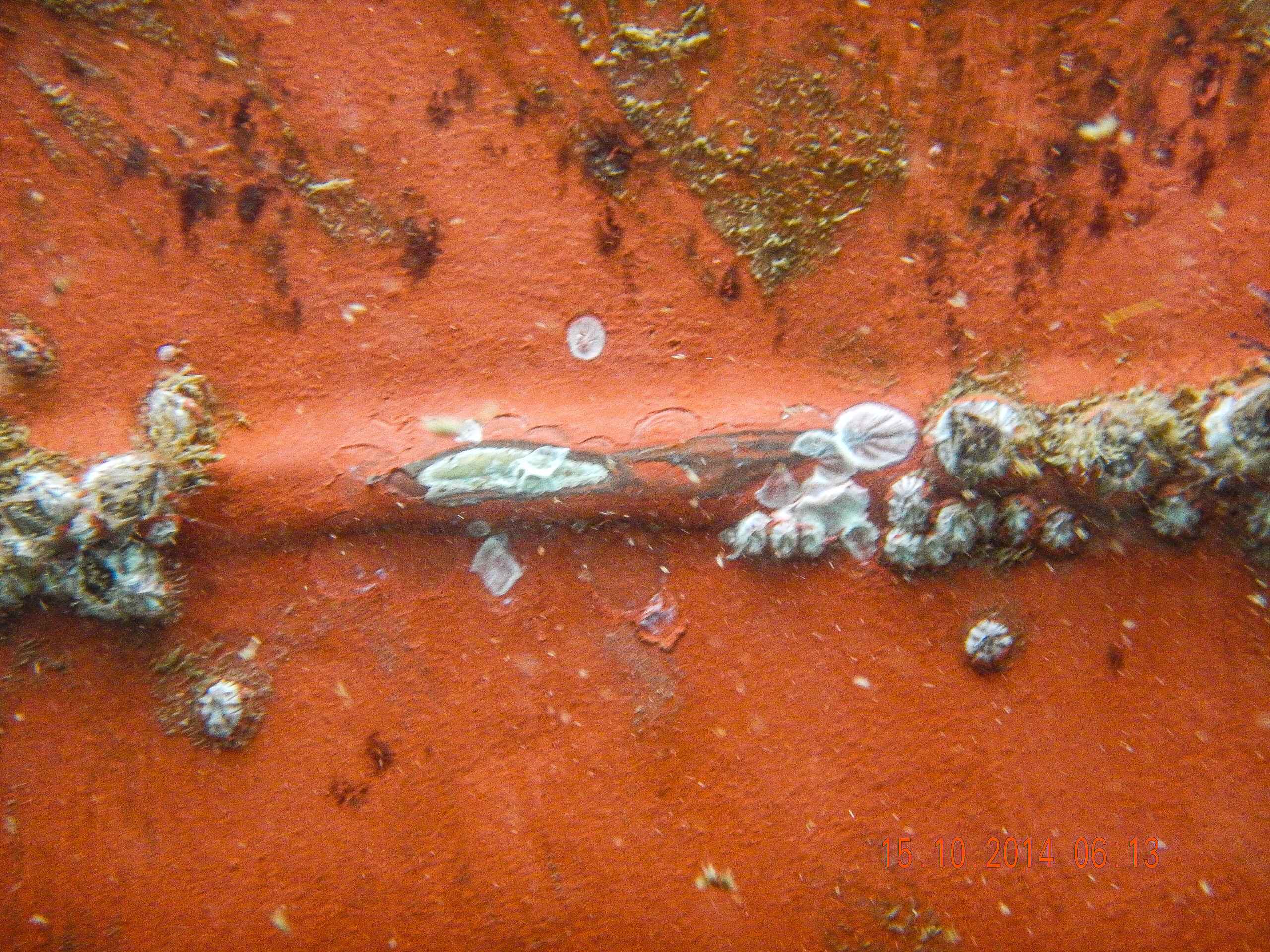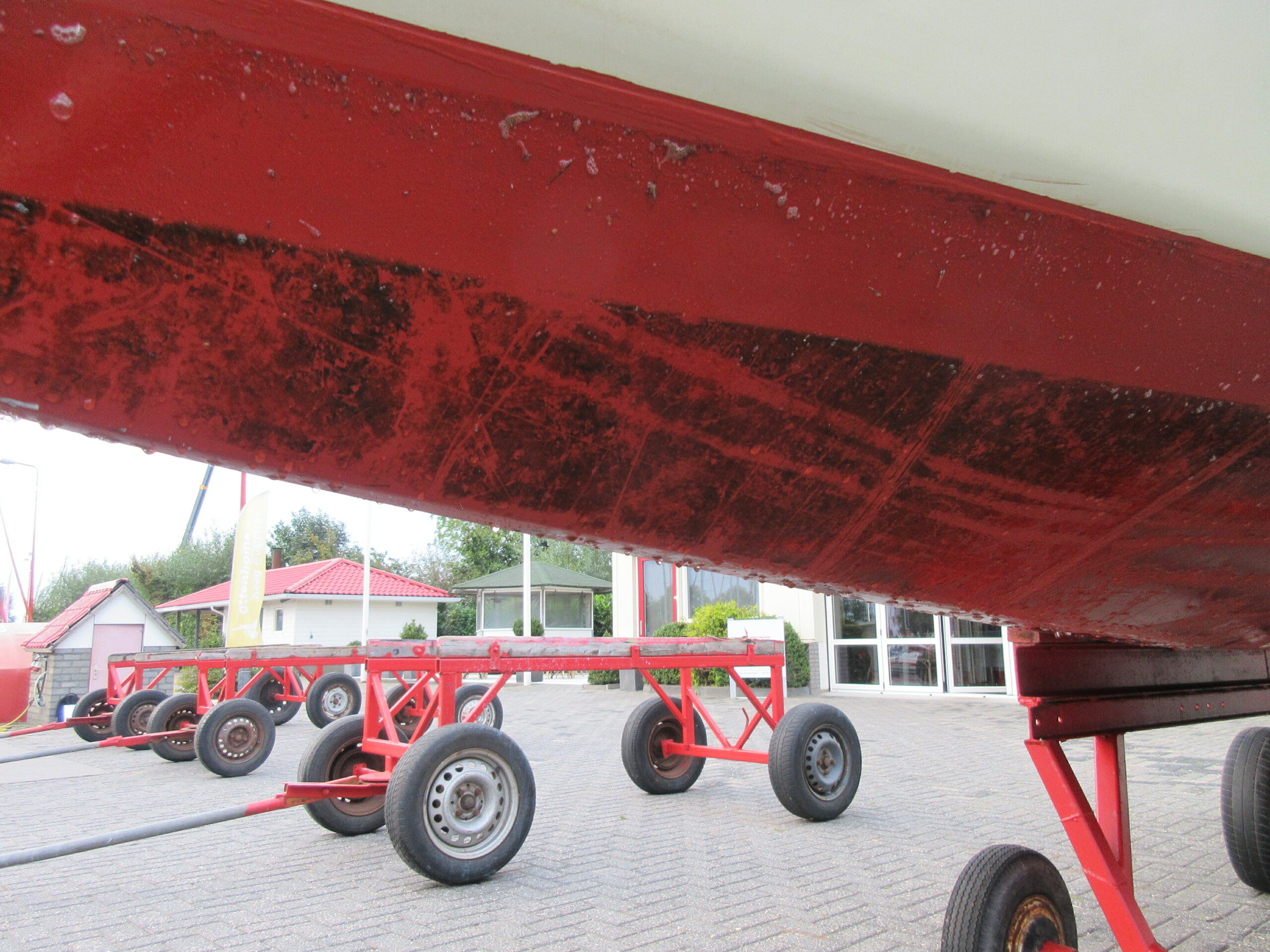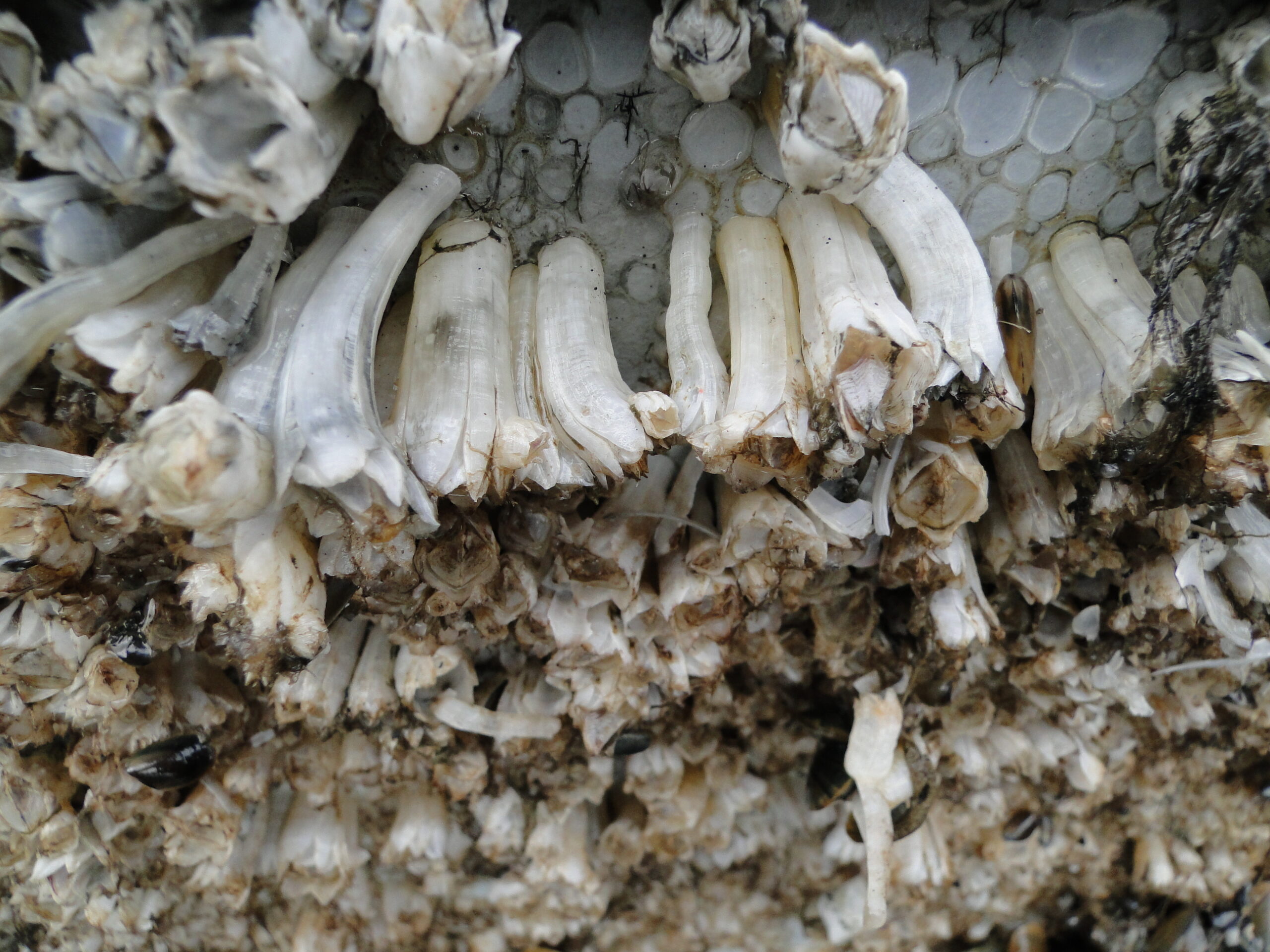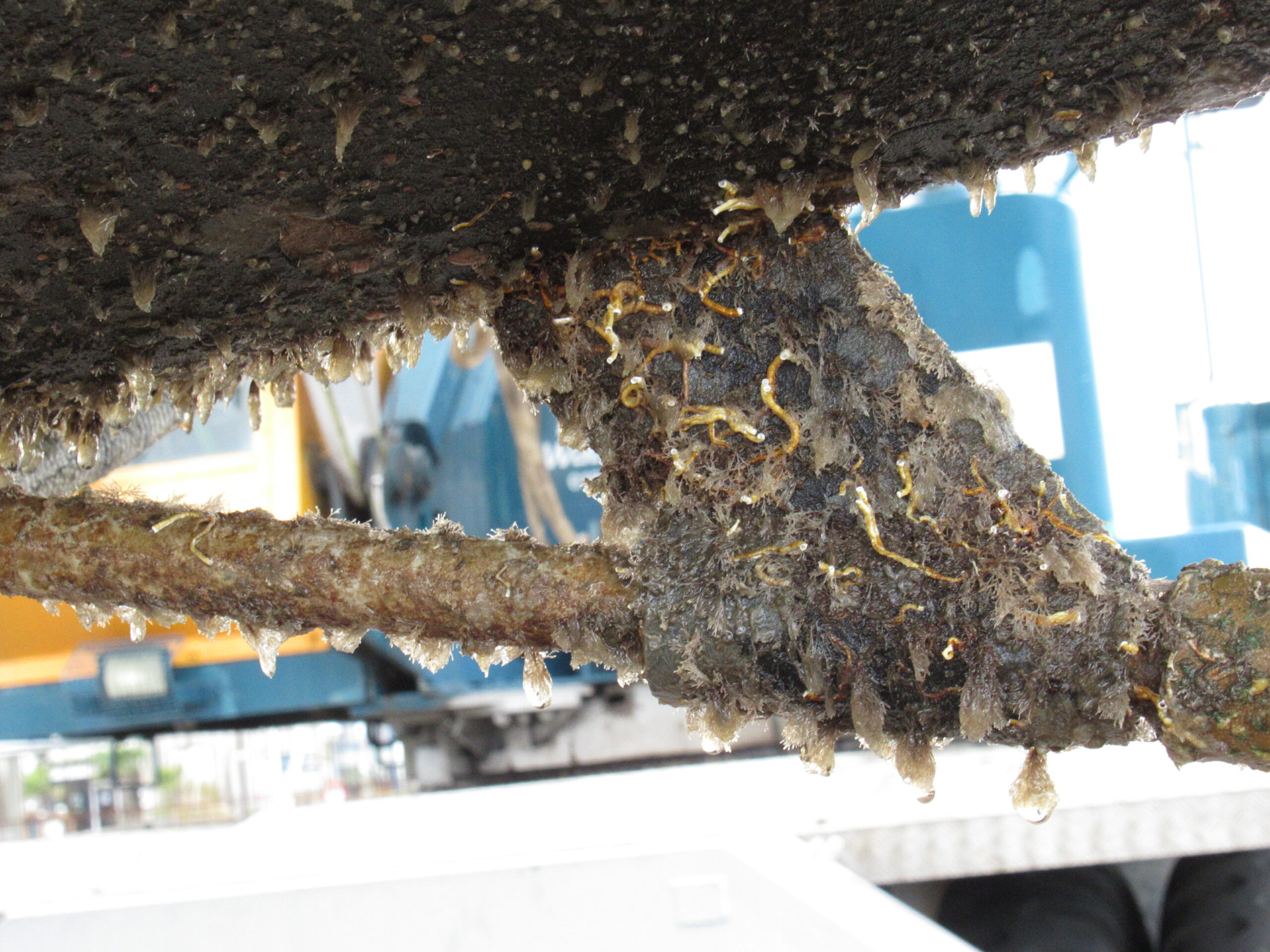Biofouling is a term referring to biological growth that can settle on the immersed hull of boats and ships (or any permanently immersed structure). The consequence of this is a strong roughening of the surface, which increases the resistance of the ship during sailing. The vessel slows down and requires a lot more fuel to maintain the same speed, resulting into increased operational costs, maintenance and greenhouse gas emissions.
Antifouling is a collective term for various techniques that can prevent or reduce fouling. There are different types of antifouling paints, some especially for pleasure craft, others for marine shipping. For large commercial ships there are also different products for vessels that are very active, e.g. sail a lot or very fast or ships that sail less and slow.
For commercial shipping, paint manufacturers supply different products for ships with different operational profiles: for example, there are special paints for ships that are very active (sailing a lot, often at higher speed) and for ships that sail very little and/or at low speed.
The effect of antifouling paints can be categorised by two mechanisms:


Many antifouling paints are based on the action of toxic substances (biocides) that are slowly released from the paint. The aim is to kill fouling organism larvae approaching the coated surface.
Due to the release of biocides into the environment, authorities impose requirements on the properties of these products. Producers will have to demonstrate through prescribed research protocols that their products meet these requirements, only after approval a product may be sold. Regulations for the authorization of antifouling paints have been tightened up over the past 15 years by the European Biocidal Products Regulation.
Would you like to know more about performing (the best) tests for the coatings of your ship / ships?
Non-toxic solutions have also been formulated, for instance foil based products and so-called “fouling release” or “non-stick” coatings based on silicone binders. These products have such surface properties that fouling organisms cannot (properly) adhere to the substrate. Marine organisms that try to settle on the hull of a ship can easily be removed if the ship starts sailing at a certain speed.
Additionally, hard inert coatings are available that have very good resistance against (regular) hull cleaning. These coatings are often used on ice-going vessels.
Endures has the knowledge and experience (more than 50 years) in-house to be of service to companies and organizations in this area. Depending on your specific question, we are happy to explain the options.
Den Helder is the home port of the Royal Netherlands Navy, the Endures laboratory is located in the same port. Our laboratory has flowing natural seawater in which we can perform all kinds of exposure tests with panels with coatings, with instrumental antifouling techniques but also with material samples and components of equipment up to small box coolers.
The IMO (International Maritime Organization) regulates antifouling coatings applied to the ships through the “Certificate of Compliance”. To find out which products are and which are not regulated under this convention, please contact Endures
In recent years, there has been more IMO talk about reducing greenhouse gas emissions in the shipping industry. It is expected that more stringent regulations will be added in the near future. Ship owners need to measure and monitor emissions and take measures to reduce emissions. Additionally, IMO has stimulated to work on drafting a new worldwide standard on hull and propeller performance measurements.
Most important component for ship owners and operators to meet regulations is to choose a good (the best) antifouling system for the hull of the vessel to reduce emissions. This can be a different product depending on type of vessel and operational activity. Endures carefully monitors the ever-changing regulations, so we are always aware of the most recent requirements.


With more than 50 years of experience, ENDURES has the knowledge and facilities to perform a wide range of tests, including:
In addition, ENDURES can assist you with:
This is just a selection of the options we can offer. If you would like more information or have any other questions about antifouling, please do not hesitate to contact us.